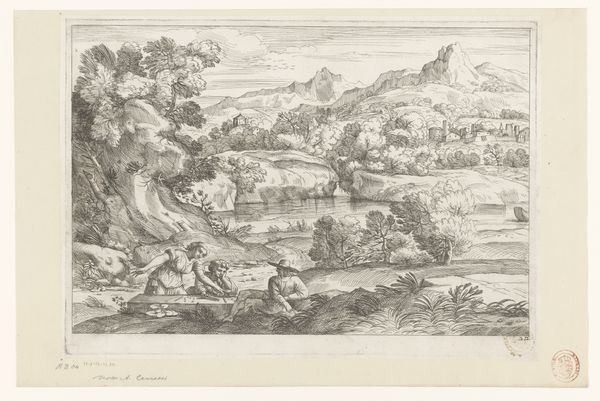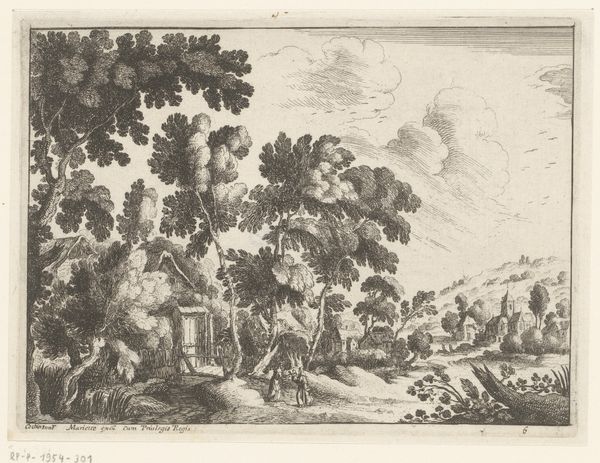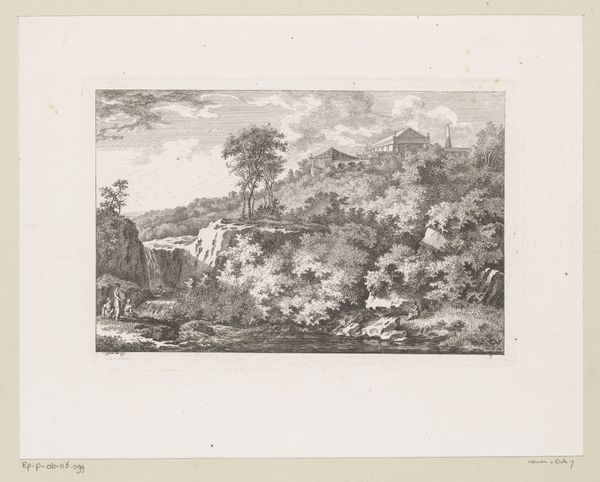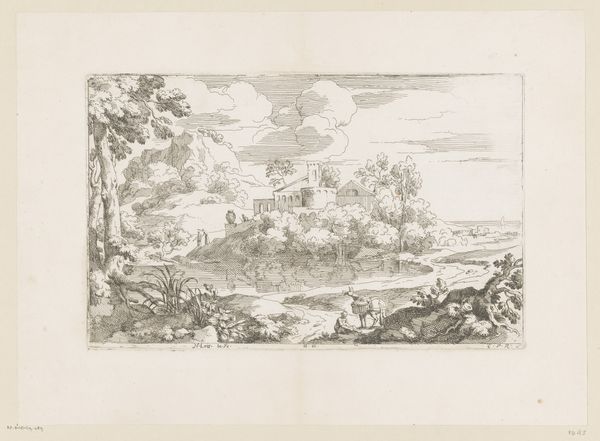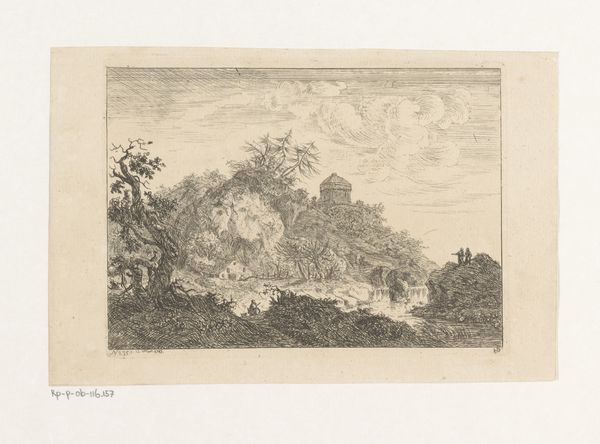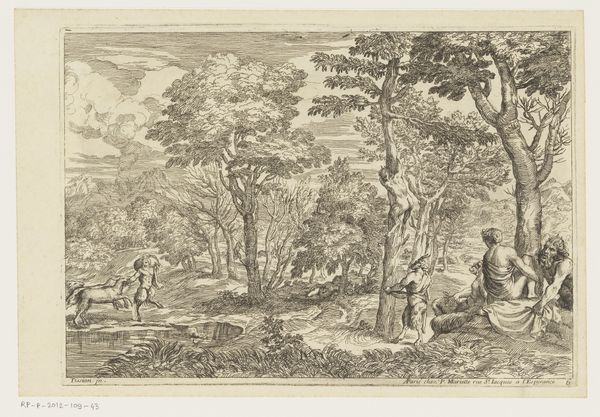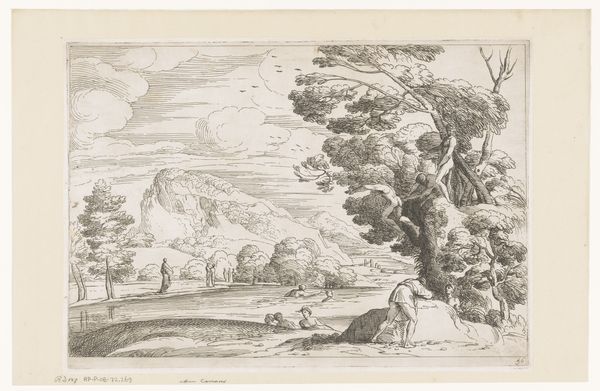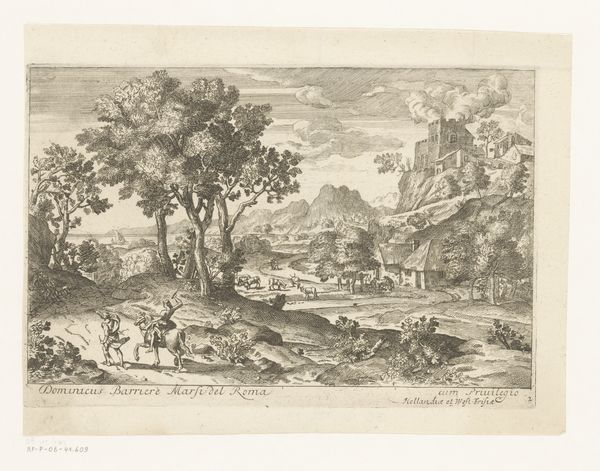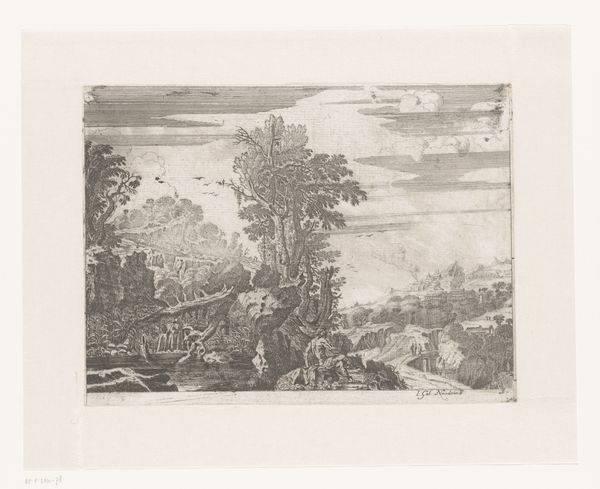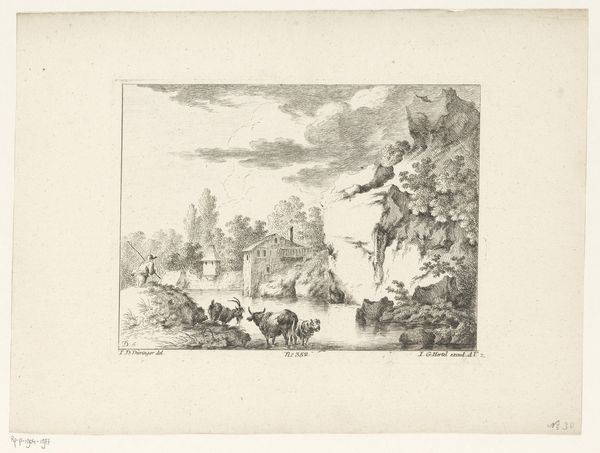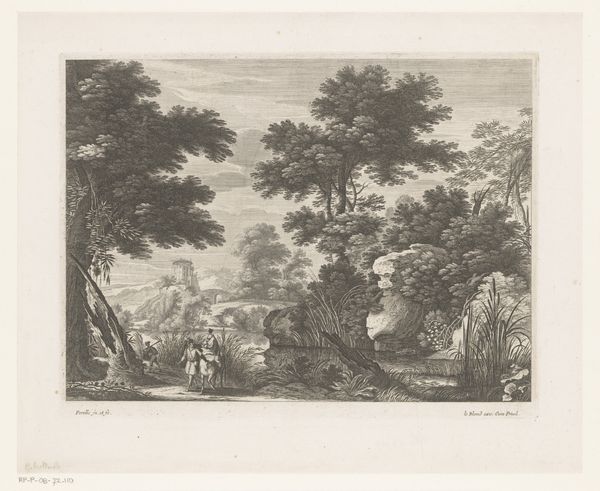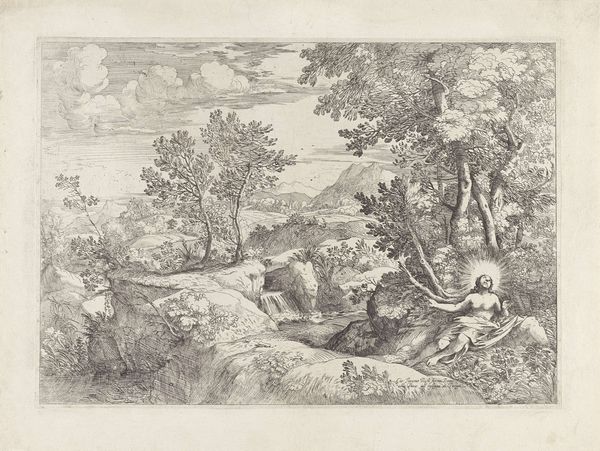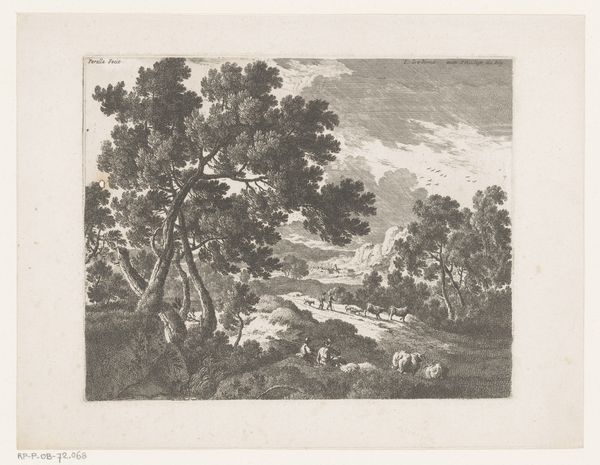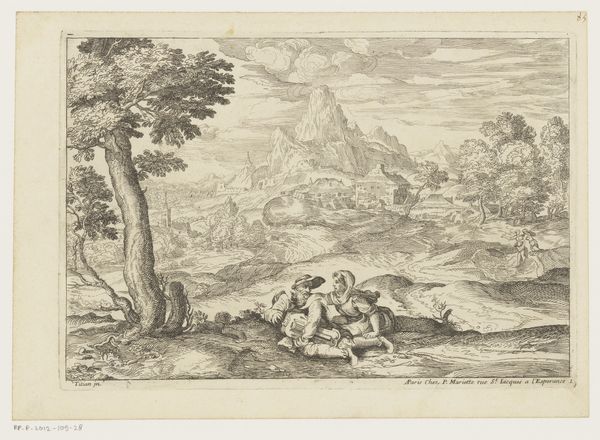
print, etching, engraving
# print
#
etching
#
landscape
#
romanticism
#
line
#
engraving
Dimensions: height 197 mm, width 276 mm
Copyright: Rijks Museum: Open Domain
Florian Grospietsch created this landscape around Olevano using etching, a printmaking technique. A metal plate, likely copper, was coated with a waxy, acid-resistant substance. The artist then scratched an image into this coating, exposing the metal beneath. The plate was submerged in acid, which bit into the exposed lines, creating grooves. Once the coating was removed, the plate was inked, and then wiped clean, leaving ink only in the etched lines. Pressed against paper, this created a reversed image of the original drawing. Etching allowed for detailed linear work, capturing textures of the Italian countryside with precision, from the foliage to the rocky cliffs. This print could be reproduced multiple times, making art more accessible. The labor involved in the etching process – the skilled hand of the artist carefully manipulating tools and materials – adds a layer of significance to the final print. It reminds us that art is not just about image, but about the process and effort embedded within it.
Comments
No comments
Be the first to comment and join the conversation on the ultimate creative platform.
